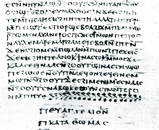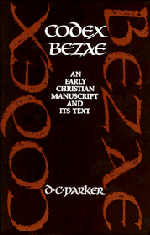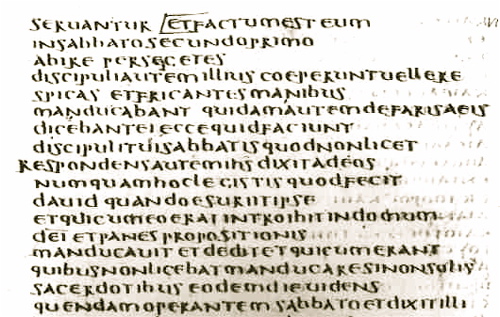Difference between revisions of "Bible"
From Nordan Symposia
Jump to navigationJump to search| Line 11: | Line 11: | ||
'''Etymology''' | '''Etymology''' | ||
Latin biblia “a collection of books” (since there are many books in the Bible) < Ancient Greek βιβλία, (biblia) “books”, plural of βιβλίον (biblion) “book”, originally a diminutive of βίβλος (biblos) < βύβλος (bublos) “[[papyrus]]” (from the ancient [[Phoenicia]]n city of [[Byblos]] which exported this writing material) | Latin biblia “a collection of books” (since there are many books in the Bible) < Ancient Greek βιβλία, (biblia) “books”, plural of βιβλίον (biblion) “book”, originally a diminutive of βίβλος (biblos) < βύβλος (bublos) “[[papyrus]]” (from the ancient [[Phoenicia]]n city of [[Byblos]] which exported this writing material) | ||
| − | |||
| − | |||
| − | |||
[[Category: General Reference]] | [[Category: General Reference]] | ||
Revision as of 02:50, 15 December 2007

"Codex II, Hammadi,last page"
Bible
- 1. The Christian holy book.
- 2. The Jewish holy book that was largely incorporated into the Christian Bible.
- 3. The analogous holy book of another religion.
- 4. A comprehensive manual that describes something. (e.g., handyman’s bible).
Etymology Latin biblia “a collection of books” (since there are many books in the Bible) < Ancient Greek βιβλία, (biblia) “books”, plural of βιβλίον (biblion) “book”, originally a diminutive of βίβλος (biblos) < βύβλος (bublos) “papyrus” (from the ancient Phoenician city of Byblos which exported this writing material)

